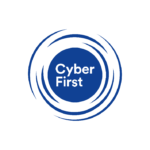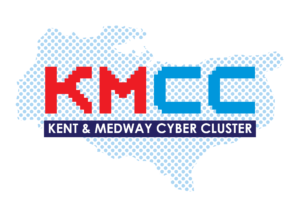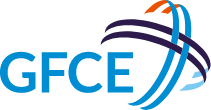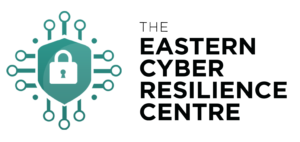iCSS is built on the success of the Kent Interdisciplinary Research Centre in Cyber Security (KirCCS), which achieved recognition as an Academic Centre of Excellence in Cyber Security Research (ACE-CSR) from 2015-2017 and again from 2018-2023 by the National Cyber Security Centre (NCSC), part of the UK Government Communications Headquarters (GCHQ). The institute works with a wide range of external partners to carry out its aims.
External Relations
ACE-CSR
The University of Kent is a UK government recognised ACE-CSR (Academic Centre of Excellence in Cyber Security Research), one of only 19 such centres in the UK. The current recognition started in 2018 and will last until late 2023. The previous recognition was from 2015 to 2017. ACEs-CSR are jointly funded by the NCSC (National Cyber Security Centre, part of GHCQ) and the EPSRC (Engineering and Physical Sciences Research Council, part of UKRI).
ACE-CSE
The University of Kent is a UK government recognised ACE-CSE (Academic Centre of Excellence in Cyber Security Education) with a Gold award status (2023-29). As of August 2023, only 8 UK universities were recognised as an ACE-CSR and an ACE-CSE with a Gold award status.

NCSC CyberFirst Programme Member
 Since 2023, the University of Kent is a member of the NCSC’s CyberFirst Programme, which is designed to offer cyber security awarenss and education activities for school pupils. This membership allows the University of Kent to run CyberFirst-branded activities itself. The membership is hosted by iCSS.
Since 2023, the University of Kent is a member of the NCSC’s CyberFirst Programme, which is designed to offer cyber security awarenss and education activities for school pupils. This membership allows the University of Kent to run CyberFirst-branded activities itself. The membership is hosted by iCSS.
Strategic Partner of KMCC (Kent & Medway Cyber Cluster)
 In 2023, iCSS helped establish KMCC (Kent & Medway Cyber Cluster), the sole local cyber security cluster for the Kent and Medway region, recognised by UKC3 (UK Cyber Cluster Collaboration), the DSIT-funded national body coordinating all local cyber security cluster across the UK. Since the establishment of KMCC, iCSS has been a strategic partner and a close collaborator on multiple joint projects, e.g., KMCSN (Kent & Medway CyberSchools Network).
In 2023, iCSS helped establish KMCC (Kent & Medway Cyber Cluster), the sole local cyber security cluster for the Kent and Medway region, recognised by UKC3 (UK Cyber Cluster Collaboration), the DSIT-funded national body coordinating all local cyber security cluster across the UK. Since the establishment of KMCC, iCSS has been a strategic partner and a close collaborator on multiple joint projects, e.g., KMCSN (Kent & Medway CyberSchools Network).
Cyber Security Research Institutes
Members of iCSS have been active participants of all the four national Research Institutes in cyber security, initialised and (co-)funded by the NCSC.
- Research Institute in Sociotechnical Cyber Security (RISCS)
- Advisory Board Co-Chair (2023-present): Dr Jason Nurse
- Scientific Board Member (2018-22): Professor Shujun Li
- Active members: Professor Shujun Li, Dr Jason Nurse
- Projects affiliated: Addressing Cybersecurity and Cybercrime via a co-Evolutionary Approach to Reducing Human-related Risks (ACCEPT); Economical, Psychological and Societal Impact of Ransomware (EMPHASIS); Ransomware: The Role of Cyber Insurance; Mobility as a service: MAnaging Cybersecurity Risks across Consumers, Organisations and Sectors (MACRO)
- Research Institute on Verified Trustworthy Software Systems (VeTSS)
- Active members: Professor Mark Batty, Professor Andy King
- Project affiliated: Symbolic Computation for Mainstream Verification; Fixing the thin-air problem: ISO dissemination, Verified Trustworthy Software Systems; Specification and verification of C++ data structure libraries; PrideMM web interface, Verified Trustworthy Software Systems
- Research Institute in Trustworthy Inter-connected Cyber-physical Systems (RITICS)
- Active members: Professor Shujun Li, Dr Budi Arief, Professor Julio Hernandez-Castro
- Project affiliated: Mobility as a service: MAnaging Cybersecurity Risks across Consumers, Organisations and Sectors (MACRO)
- Research Institute in Secure Hardware and Embedded Systems (RISE)
- Active member: Professor Gareth Howells
Academic Partnerships and Memberships
Fully or partly represented by iCSS and/or its members, the University of Kent is part of the following cyber security partnerships and cyber security related membership organisations.
ISC2 is the world’s leading member association for cybersecurity professionals. Its more than 600,000 members, candidates and associates lead the profession with the same shared vision. ISC2’s premier cybersecurity certifications – including the renowned CISSP – enable professionals to demonstrate their knowledge, skills and abilities to employers. They also provide confidence to organizations and government agencies around the world that individuals earning our certifications have what it takes to secure their critical assets. ISC2 is also offering an entry-level certification CC (Certified in Cybersecurity), whose training and exam can be accessed for free via its 1MCC initiative (register to benefit from the initiative via a local promotion campaign jointly run by iCSS, KMCC and ISC2).
The Global Forum on Cyber Expertise (GFCE) strengthens international cooperation on cyber capacity building by connecting needs, resources and expertise and by making practical knowledge available to the global community. The current focus of the GFCE is three-fold: coordinating regional and global cyber capacity projects and initiatives; sharing knowledge and expertise by recommending tools and publications; and matching individual needs for cyber capacities to offers of support from the community as a clearing house function. iCSS is a partner of the GFCE, after finishing a GFCE-contracted research project on pre-university cyber security and online safety education in 2022 (read the project report).
The Chartered Institute of Information Security (CIISec) is the only pure-play information security institution to have been granted Royal Charter status and is dedicated to raising the standard of professionalism in information security. CIISec helps individuals and organisations develop capability and competency in cyber security. iCSS represents the University of Kent as an academic partner of CIISec, which means that our students can benefit from a CIISec student membership while they are studying.
The Institute of Cyber Digital Investigation Professionals (ICDIP) promotes, develops, and represents the professionalism, integrity and excellence of those operating within cyber digital investigations. ICDIP was created to professionalise and upskill Law Enforcement Agency (LEA) cyber digital investigation individuals. However, it has expanded to include individuals from other organisations who undertake cyber digital investigations. It provides organisations with confidence that individuals who achieve membership of the ICDIP have professional recognition and status for the specialist work that they perform on a day to day basis. iCSS represents the University of Kent as an academic partner of ICDIP.
The Academic Resilience & Security Community (Academic RiSC) is a network of universities formed to promote academic engagement in solving challenges in national security and resilience. Academic RiSC is recognised by the Home Office and other Government Departments as a portal to academia for this area. iCSS represents the University of Kent as an academic partner of the Academic RiSC.
The National Cyber Deception Laboratory (NCDL) was established in 2019 by Cranfield University in partnership with the UK MOD’s Defence Cyber School to be recognised as the UK’s nexus for cyber deception in proactive cyber defence. The NCDL brings together a unique range of practitioners, technology vendors, and researchers in the field of Cyber Deception and provides a community of practice environment that catalyses imaginative and innovative Cyber Deception research in a number of areas. iCSS represents the University of Kent as an academic partner of the Academic RiSC.
EC-Council Academia partnerships offer cost-effective, authorized learning resources for enrolled students to properly prepare them for EC-Council exams and ultimately their careers after graduation. Students have the opportunity to achieve industry recognized certifications and compete in free cyber competitions as they complete their degree programs, achieving the ultimate stackable credential line-up to enhance their resume. iCSS partnered with EC-Council to sponsor a number of MSc students each academic year towards one EC-Council certification to further enhance their CVs in the current competitive job market.
The Information Security Forum (ISF) provides award-winning consultancy services, training and certifications and professional support activities that supplement the implementation of ISF research and tools, to all member organisations. ISF provides its members with access to the right tools and be able to detect, respond and resolve ongoing and emerging threats to protect the future of businesses. iCSS represents the University of Kent as an academic member of the ISF.
The Eastern Cyber Resilience Centre (ECRC) is part of the national roll out of Cyber Resilience Centres in the UK which began in 2019. Working with local Universities and Regional Police forces, ECRC offers a number of support services and access to the latest information on emerging cyber threats, criminal trends, best practice for cyber resilience and new technology. iCSS is a collaborator of ECRC and one of its Core Member Dr Budi Arief sits on its Advisory Group.
The International Information Integrity Institute (i-4)
The International information integrity institute (i-4), within KPMG, is a global knowledge and experience-sharing forum for senior information security leaders. i-4 brings together leading minds in the world of information security and risk, who are looking to stay one step ahead of the issues that could affect their businesses. iCSS represents the University of Kent as an academic member of i-4.









